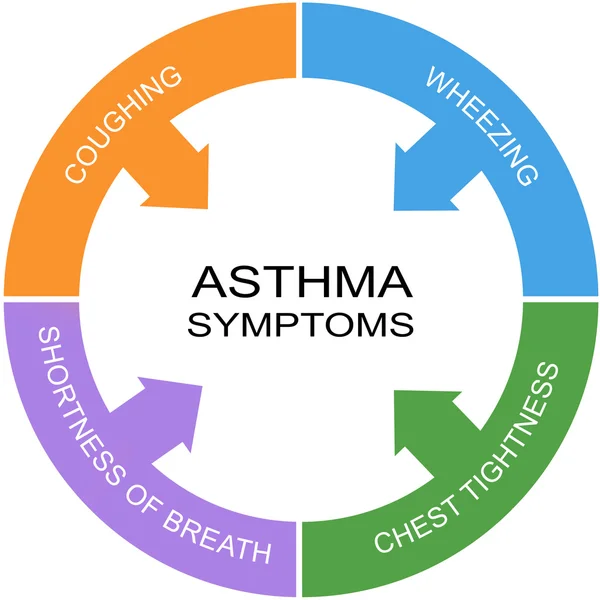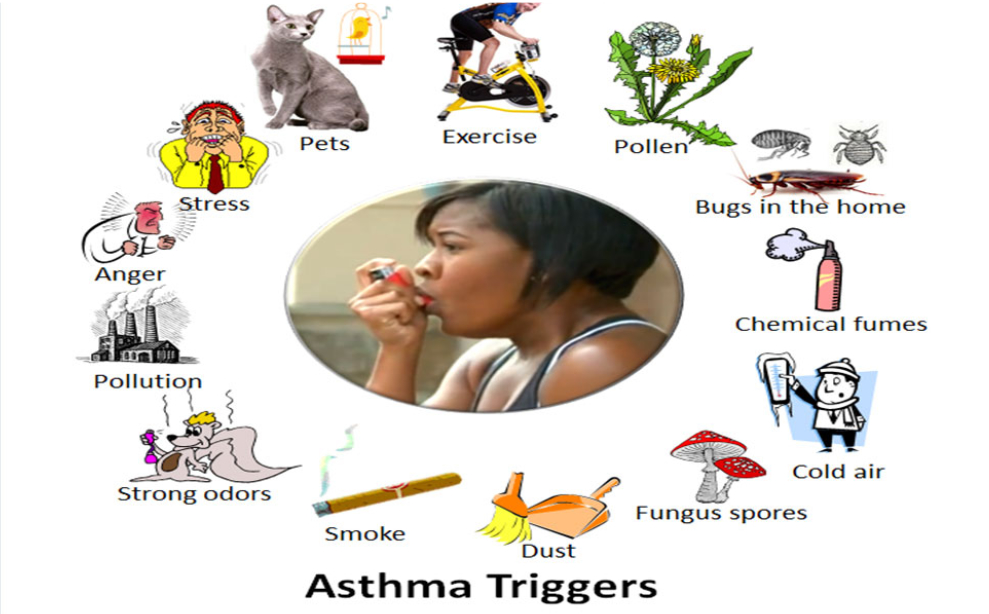What is Asthma?
What Is Asthma? - ASTHMA IS NOT STRANGE
Asthma is not a strange ailment. It is a disease of the airways in the lungs. Asthma can affect children, adults, males, females, the poor and rich. Some have family histories of asthma, as it can be inherited. Asthma can start at any age. Some people get symptoms during childhood while others develop asthma later in life, as an adult. However, you are more likely to develop asthma if you have a family history of asthma, seasonal allergies, eczema, or other allergies.

What are the symptoms of Asthma?
A cold or chest infection can cause late-onset asthma in adults. Smoking during pregnancy, including second-hand smoke, increases the chances that the child who is born will develop asthma. Irritants, such as chemicals and dust, found in the workplace may lead to a person developing asthma. Globally, close to half a billion people have asthma. It is not a communicable disease, meaning it is not an illness you catch from someone else. Also, you cannot transmit it to those around you.
When people who are asthmatic come into contact with anything that irritates their airways, their airways become narrower and sometimes mucus accumulates, leading to the symptoms of asthma. These irritants that may cause asthma symptoms are called asthma triggers. Since asthma affects the airways of the lungs, it may make it hard to breathe.

People who have asthma may present with one or more of the following symptoms:
- Wheezing or noisy breathing
- Shortness of breath or breathlessness
- Chest tightness
- Coughing at night, especially children
- Not everyone presents with the same symptoms. Also, these symptoms may come and go
Common Asthma Triggers
“Genes load the gun and environment pulls the trigger”. An asthma trigger is anything that irritates the airways of the lungs and starts the asthma symptoms or makes the asthma symptoms worse. People who have asthma may find it difficult to know their triggers (or all their triggers) as there may be a delayed reaction. A good way to keep track of possible triggers is by keeping note of one’s activities and environment. Keeping note of where one is and what one is doing may document patterns that help identify the triggers.Once the triggers are known, asthmatic patients should always avoid them. This may not always be possible. However, there are ways to reduce the effect these triggers may have on the asthma symptoms: Use the controller inhaler every day as prescribed .Always carry the reliever (rescue) inhaler, in case it is needed.

Some common triggers include:
- Pollen
- Produced by certain trees, grasses, weeds and flowers
- Over-the-counter medicines can help
- House dust mites: These are tiny creatures that live in beds, rugs and other fabrics Ensure these materials are regularly aired out or put in the sun
- Animals Animal fur, feathers, urine, skin cells can all be triggers
- Cold and flu Eating a balanced diet can help you stay healthy
- Smoking Smoking can make asthma medicines less effective and increase the risk of an asthma attack
- Exercise If exercise is a trigger, a doctor may suggest using the reliever inhaler or a change in treatment
- Emotions Stress, strong emotions or even laughter can trigger symptoms
- Pollution Car exhaust fumes and other air pollutants can irritate the airways
- Weather Sudden changes in temperature and extreme weather conditions can trigger symptoms
- Sex If symptoms become worse during sex, the doctor may suggest using the reliever inhaler beforehand
- Hormones Some women have symptoms at puberty, before their periods, during pregnancy or at menopause
- Food Certain foods such as cow’s milk, eggs, fish, nuts trigger symptoms in some people

How do we know when Asthma is well-controlled?
- No daytime symptoms
- No night-time awakening due to asthma such as from coughing
- No need for reliever inhaler or rescue medication
- No exacerbations (no worsening of symptoms)
- No limitations on activity (be able to carry out all usual activities, including exercise)
- Normal lung function
- No emergency department visits due to asthma Minimal or no side effects from medications
- Satisfaction of the patient and family with care
Table of Contents
Get answer to mostly asked questions about asthma.
